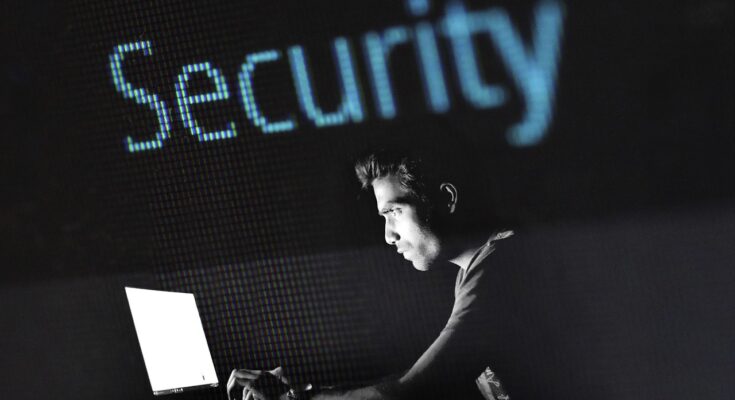ZonaJakarta – In today’s digital world, your laptop is more than just a gadget—it’s your office, your bank, your photo album, and maybe even your side hustle. So, when it starts acting up, it’s not just annoying—it could be a sign of something more serious.
From suspicious pop-ups to mysterious background activity, hackers have gotten sneakier than ever. And while not every tech glitch means you’ve been compromised, there are a few warning signs you really shouldn’t ignore.
Let’s break down the most common signs your laptop might be hacked, plus what you can do to fight back and stay protected.
1. Your Laptop Suddenly Gets Slower for No Reason
If your device feels like it’s moving through molasses—even when you’re just browsing or writing an email—malware could be hogging your resources.
Why this matters:
Hackers often install malicious software that quietly runs in the background, draining your CPU and memory to do things like mine cryptocurrency, log your keystrokes, or spy on you.
What to do:
Open your Task Manager (Windows) or Activity Monitor (Mac) to see if unfamiliar programs are using up resources.
2. Strange Browser Behavior
Notice weird extensions you never installed? Or your homepage and search engine suddenly changed? This is a classic sign of browser hijacking—and it often means something slipped past your defenses.
You may also notice:
– Excessive pop-up ads
– Redirects to shady websites
– Auto-filled forms with data you didn’t enter
What to do:
Clear your browser cache and extensions. Then run a full malware scan immediately.
3. Your Contacts Receive Emails You Didn’t Send
If your friends, coworkers, or clients are asking, “Hey, did you just send me this weird link?”—your system (or at least your email) may have been compromised.
Why this is serious:
Hackers could be using your account to spread phishing links or spam to people you know—and that hurts both your reputation and your security.
What to do:
Change your email password immediately and enable two-factor authentication. Also check your “Sent” folder and account activity.
4. You’re Locked Out of Accounts
Suddenly can’t log in to your laptop, email, or cloud storage—even though your password is correct?
That’s a huge red flag.
Hackers often change your credentials after breaking in, locking you out to prevent you from stopping their activities.
What to do:
Use account recovery tools, change passwords on other devices, and act quickly to contact support if needed.
5. Your Webcam or Microphone Turns On Without You Knowing
This one’s creepy. If your webcam light turns on randomly—or you hear mic activity while doing nothing—it could mean someone is spying.
Warning signs include:
– Files or folders with unknown audio/video recordings
– System asking for webcam/mic access without a clear reason
– Webcam indicator light flashing randomly
What to do:
Cover your webcam (seriously), check app permissions, and scan for spyware.
6. You Notice Files Disappearing or Appearing Mysteriously
Finding documents you never created—or worse, discovering files are missing or moved—isn’t just a sign of a bug. It could mean a hacker is poking around your system.
Especially suspicious if:
– File names are gibberish
– You see file types like .exe or .bat you didn’t create
– Your downloads folder fills up without you doing anything
What to do:
Backup your important files, then scan for malware. It might be time for a clean reinstall if damage is widespread.
7. You See Unknown Programs Running or Installed
If your Start Menu or Application folder looks unfamiliar, someone—or something—has likely added software behind your back.
Look out for:
– Tools with strange names or no icon
– Apps that auto-launch on startup
– Remote access programs you never installed (like TeamViewer or AnyDesk)
What to do:
Remove the unknown programs, disable them from starting automatically, and change your system password.
8. Your Internet or CPU Usage Spikes Out of Nowhere
Are your fans running loud even when nothing’s open? Or your internet feels oddly slow, but only on your laptop?
This could be a sign that malware is using your connection to send or receive data in the background.
What to do:
Open your Resource Monitor and check for unexplained data usage. Block suspicious processes and run a full security check.
9. Antivirus or Firewall Is Disabled—and You Didn’t Do It
Hackers often disable your protection first so they can operate freely. If your antivirus or firewall is off without your consent, that’s a serious red flag.
What to do:
Reconnect to the internet only in safe mode, re-enable your protection tools, and update your system security settings.
What to Do If You Think You’ve Been Hacked
1. Disconnect from the Internet – To stop remote access immediately.
2. Run Full Antivirus & Malware Scans – Use a trusted security suite.
3. Check Startup Programs & Installed Apps – Delete anything suspicious.
4. Change All Passwords from a Safe Device – Especially email, banking, and work-related accounts.
5. Back Up Important Data – Before attempting a full reset.
6. Consider a Factory Reset or Reinstall OS – If damage is severe.
7. Enable 2FA on Everything – It’s your second line of defense.
Bottom Line: Stay Smart, Stay Secure
Your laptop might look perfectly fine on the surface—but underneath, hackers could be digging through your digital life. Don’t wait for the damage to be done.
If you spot multiple warning signs, act fast. The longer a hacker stays in, the more they can take.
And remember: regular updates, strong passwords, and a little digital street smarts go a long way in keeping your system safe. (*)

